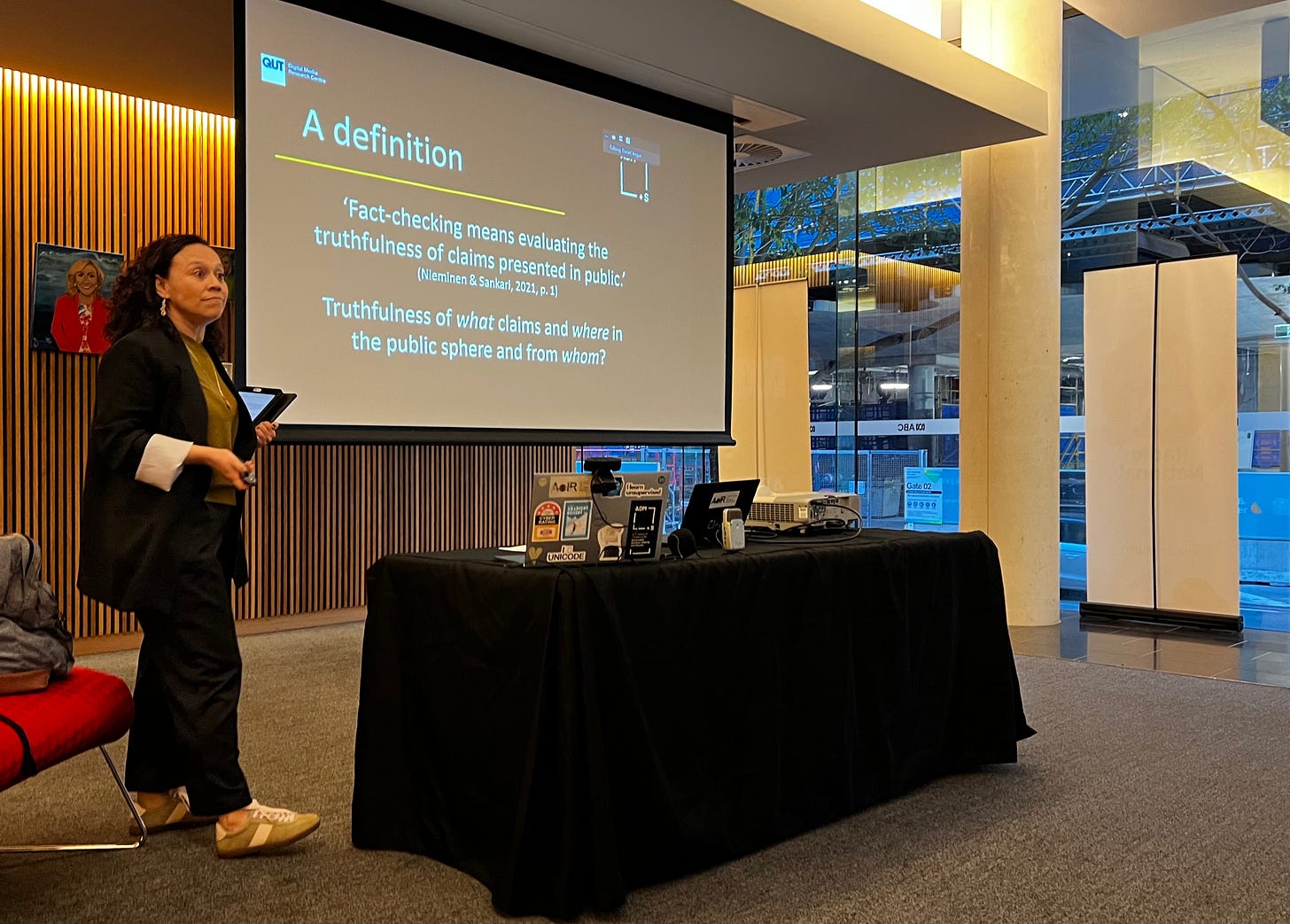Exploring generative AI & How it was made: breaking down the referendum results
It's a double header for our second last meetup of the year!
Culture and processes for selecting targets for GenAI exploration as it exists today
First up we'll have Craig McCosker looking at best practices for exploring the use of generative AI in a newsroom context.
How it was made: ABC News Story Lab's referendum results breakdown
Covering the first referendum held in the era of digital news presented some interesting challenges and opportunities. Tim Leslie and Ash Kyd will talk us through the story craft behind Beyond No, here's what we know about the Voice results — how did it come together, what worked well, what did they learn.
Event details
When: 5.30pm, Wednesday 25 October
Where: Foyer of the ABC building, South Bank
Register on Humanitix
Last month
Our regular newsletter writer Thom is away this month, so you’ll have to put up with my patchy notes from last month’s event — Simon
September saw us return to our ongoing collaboration with the ARC Center of Excellence for Automated Decision Making and Society (ADM+S), hosting researcher Dr Silvia Montaña-Niño.
With more than a decade of experience in the Colombian print journalism scene before turning her attention to research, Silvia’s insights into fact-checking are fascinating.
We started with a few definitions and a bit of scene setting:
'Fact checking means evaluating the truthfulness of claims presented in public.'
In the 80s, 90s and 2000s fact-checking was all about political ad watching.
More lately it has been about political speech fact checking.
Insights from Brazil: Fact checkers are the target of hate and some types of health and science misinformation are a signifier that you're politically aligned with a certain party.
Over the past several years there have been developments that have added complications to fact-checking:
Fragmentation of the public sphere.
Platforms' centrality and outlets interdependence with platforms.
Political discourses are deeply intertwined with scientific ones.
It's hard to differentiate between political discourse and fact-based (scientific) discourse.
AI increasing the speed and scale of disinformation tactics used by malicious actors.
Focus changed from 'top down' fact checking (political) and moved to bottom-up or 'debunking' approach (countering disinformation shared by users on social media).
Changes in the genres of fact checking
It's moving from a 'cartesian' method cultivated in western journalistic cultures to a more 'analytical' style. Standard ratings are considered too rigid and more nuance is being included in fact-checking output.
Different genres that are developing:
Pre-bunking: preventative evergreen content such as media literacy pieces, disinformation investigations, ‘checktainment’ pieces.
Fact-checking rating systems: Nuance scales to rate political speech science, environment, health, etc with explainers on top.
Debunking: Verification of viral content from social media users.
Along with the development of these genres there have been changes in fact-checking values and the way subjects of fact-checks are selected:
Degree of harmfulness: physical and social risks involved, from pandemic, environment crisis, disasters to targeted hate speech attacks.
Degree of verifiability: Fact-checks discard opinions and focus on what can be verified.
Degree of explainability: Are there available sources to produce an explainer?
Degree of gullibility: to what extent do people believe and amplify problematic narrative frames, especially for parody and satirical content?
Degree of detectability: available accurate tools to detect and contextualise circulating claims and doctored content.
In the context of generative AI: "The future of fact-checking is more human."
Fact checking organisations are open to embracing AI but embedding novel and disjointed tools into the practices of fact-checkers takes time.
Overall, Silvia gave the impression that fact-checking is a real uphill battle. Despite lots of research like hers and a resurgence in practice, fact-checking is getting harder and it remains a challenge to validate its effectiveness.



